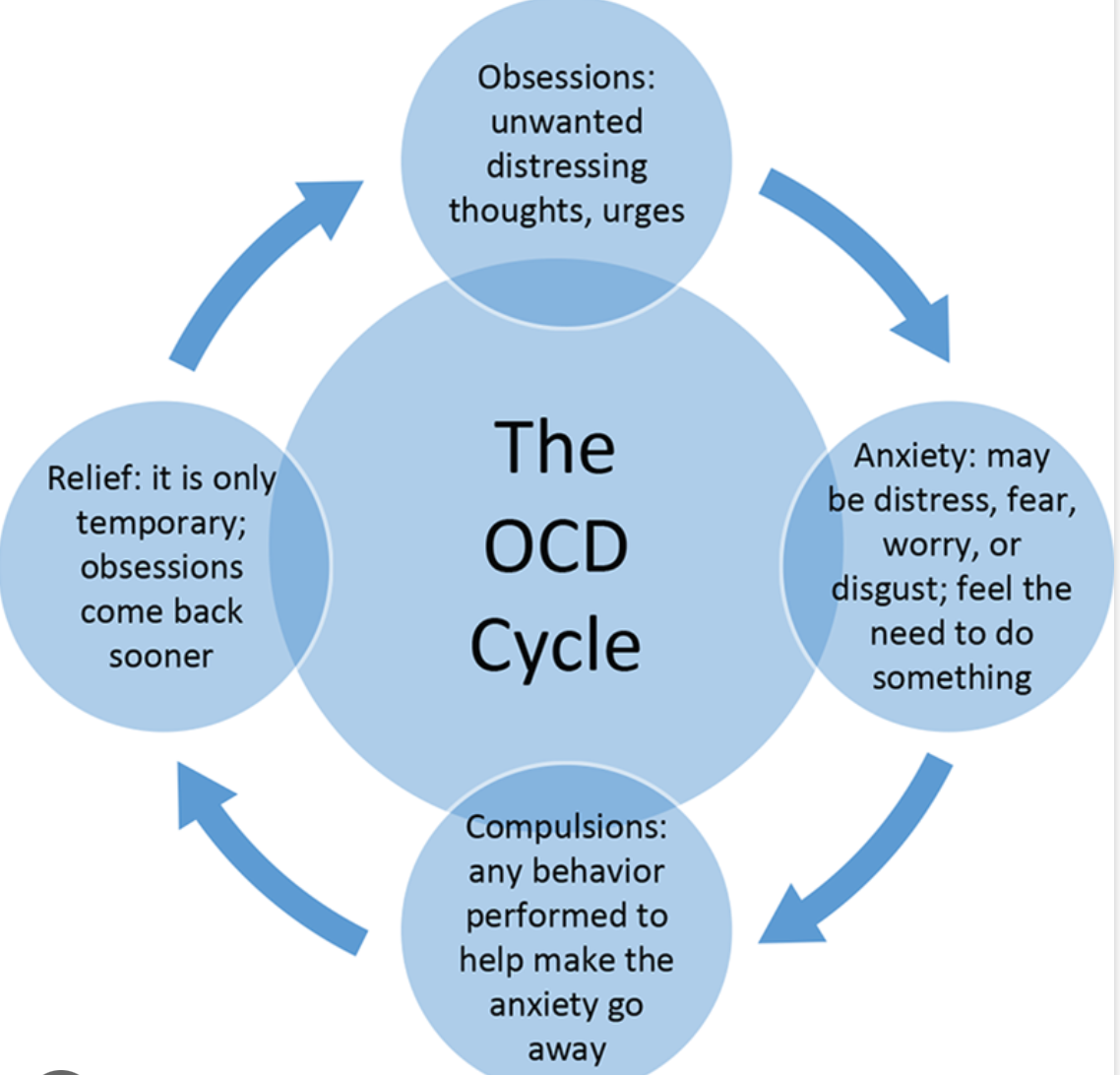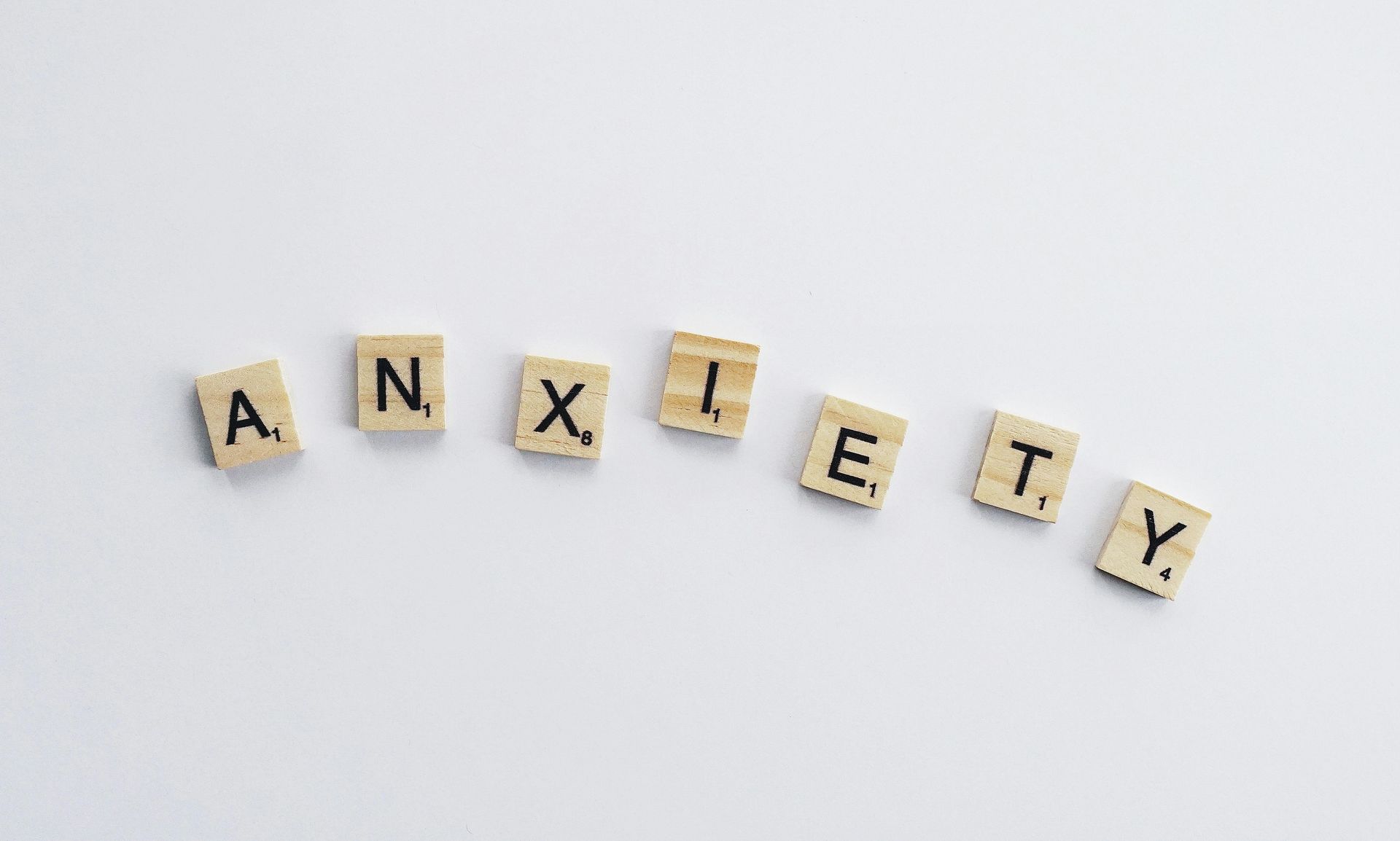Let's Talk OCD
It’s Not Just Needing Things “Perfect”: What OCD Really Looks Like

When most people hear “OCD,” they picture color-coded closets, alphabetized spices, and someone who just loves cleaning.
But real OCD — the kind that takes up space in your brain and hijacks your peace is not about being neat. It’s about fear, control, and a brain that feels like it’s running constant “what if” scenarios that never stop.
OCD doesn’t care if you’re logical. It doesn’t care if you know your thought doesn’t make sense. It just whispers, “But what if it’s true?”
As a therapist who specializes in anxiety, OCD, and panic, I’ve seen how misunderstood this disorder is and how powerful it can be when you finally understand what’s really going on in your mind.
The Truth About OCD
OCD (Obsessive-Compulsive Disorder) is an anxiety disorder. It’s not a personality quirk or a desire for perfection; it’s the brain’s overactive alarm system.
It looks like this:
- An intrusive thought shows up — “Did I lock the door?” or “What if I hurt someone I love?”
- Anxiety spikes.
- Your brain sends a signal: “Do something to feel safe.”
- You check, repeat, pray, Google, confess, or count — just to calm the storm for a second.
- The anxiety fades… and then comes back stronger next time.
That’s the OCD cycle: Obsession → Anxiety → Compulsion → Relief → Repeat.
It’s like your brain keeps trying to “close all the open tabs,” but every time you hit close, ten new ones pop up.
OCD Isn’t Just About Cleanliness
There are so many faces of OCD — and most of them aren’t visible to anyone else.
Here are a few common ones:
- Checking: locks, stoves, doors, or messages to make sure you didn’t “mess up.”
- Contamination fears: not just about germs, but the fear of something bad happening if you touch the “wrong” thing.
- Harm or intrusive thoughts: “What if I snapped and did something awful?” These thoughts are terrifying and unwanted — not desires.
- Scrupulosity: religious or moral obsession, where you feel constantly guilty or “not good enough.”
- Relationship OCD (ROCD): obsessive doubts like, “What if I don’t really love them?” or “What if they’re not the one?”
- Perfectionism: rereading emails ten times, redoing tasks until it “feels right,” or avoiding things altogether out of fear of imperfection.
If you read this list and felt your stomach drop a little — you’re not broken. You’re human, and your brain just learned a survival pattern that needs retraining.
How Therapy Helps You Reclaim Control
The gold-standard treatment for OCD is called Exposure and Response Prevention (ERP) — and despite the scary name, it’s not torture. It’s actually empowerment.
ERP helps you:
- Understand your patterns — what triggers you, what your brain is trying to protect you from.
- Face anxiety in small, manageable doses — so your brain learns that you can handle uncertainty without performing compulsions.
- Rebuild trust with yourself — the kind that OCD quietly erodes over time.
It’s not about throwing you into panic or telling you to “just stop.” It’s about helping your nervous system slowly learn safety again- one choice, one breath, one exposure at a time.
In my practice, I start with an evaluation to understand your version of OCD, because no two people experience it the same. From there, we create a plan that balances challenge and compassion.
Because healing isn’t about perfection, it’s about learning that you can live fully even when things feel uncertain.
You’re Not Broken. You’re Just Wired to Protect Yourself.
OCD tries to keep you safe. It’s your brain’s overprotective bodyguard that never got the memo that you’re actually okay.
The work of therapy is teaching that part of your brain to stand down.
At Wildflowers Within Counseling & Wellness, I specialize in supporting individuals with anxiety, panic, OCD, and trauma using evidence-based treatment like ERP, CBT, and nervous system regulation to help you reconnect with peace, presence, and purpose.
If you’re tired of OCD calling the shots in your life, I’d love to help you learn to take your power back — not by fighting your thoughts, but by understanding them.
Because you deserve to bloom — wild, imperfect, and completely human. 🌿


